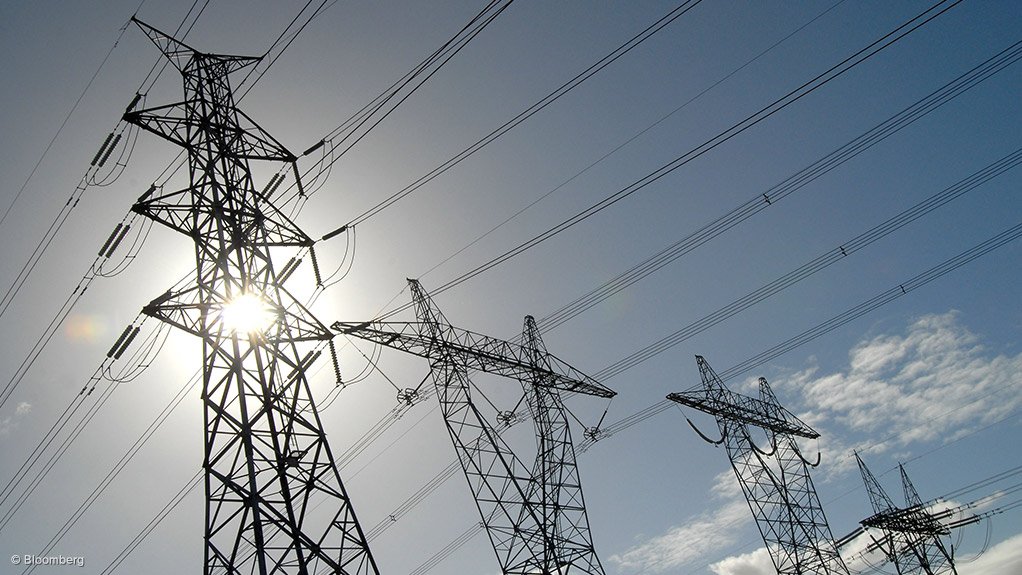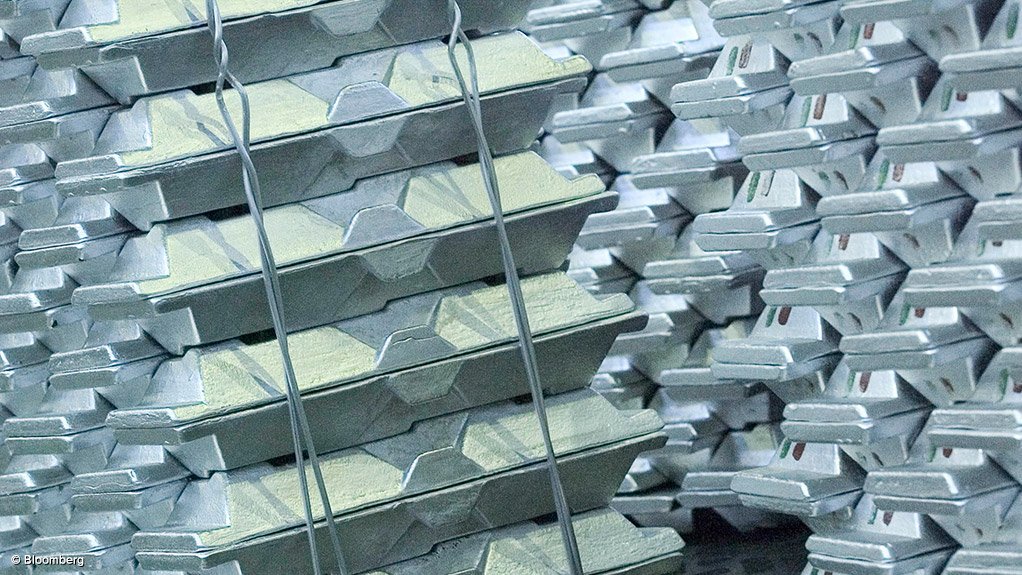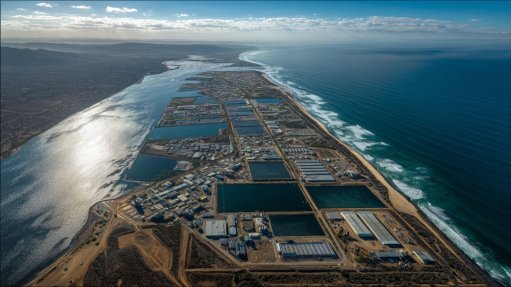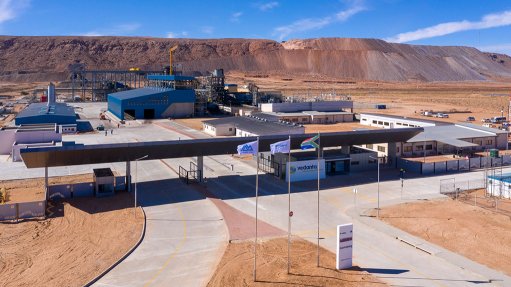Stable energy source key challenge for aluminium industry



INDUSTRY NEED To maintain a sustainable South African aluminium industry, the companies would need to secure electricity supply
MEETIND DEMAND Recycling of aluminium enables supply when aluminium consumption increases
Photo by Bloomberg
The availability of stable energy sources at competitive prices remains a core challenge for the South African alumin-ium industry, says EY Africa mining and metals leader Wickus Botha.
“As aluminium smelting processes are sig-nificantly energy intensive, these smelters and foundries require a stable energy supply to maintain efficient production, which is currently unavailable.”
He notes that several smelters are operating below optimal capacity, owing to rising elec-tricity prices and an unstable electricity supply, adding that several smelters are participating in State-owned power utility Eskom’s buy-back programmes, through which the utility buys back surplus electricity to manage the country’s current supply.
In addition, rising electricity costs, com-petitiveness challenges and a lack of contracts from the automotive sector have caused several aluminium casting foundries to close, with four having closed down since 2003, while production volumes of aluminium castings declined by about 40% in the past decade.
Energy for Beneficiation
Botha reiterates the need for a stable energy or electricity supply to encourage increased beneficiation, which forms part of manufac- turing.
As the Department of Trade and Industry is focusing on creating an environment that supports and encourages manufacturing and beneficiation, with a focus on moving up the value chain of raw mineral resources – such as polymers, ferrous metals and natural resources – Botha maintains that aluminium smelting operations present a further opportunity for methods of downstream processing.
However, to maintain a sustainable South African aluminium industry, the companies would need to secure electricity supply and then have this energy and electricity competitively priced, Botha emphasises, pointing out that the abundance of smelting facilities in northern European countries and their competitive prices are the result of their abundant and stable energy supply, which includes geothermal energy.
Botha believes this also results in an oversupply of rolled aluminium locally, owing to increasing imports from countries such as China and those in northern Europe that produce aluminium at cheaper rates.
Excess Capacity
Excess aluminium production capacity also remains a key risk for the industry, as the lower aluminium prices earlier this year resulted in producers delaying or reducing new capacity to reduce excess production, Botha warns.
Aluminium products manufacturer and supplier Hulamin told Engineering News in July that the excess capacity in flat rolled products meant that the industry remained “fiercely competitive”, while the absence of import duties in South Africa created additional opportunity for countries such as China, Brazil and the Middle East to export their products to the country.
Industry association Aluminium Federation of South Africa director Mark Krieg agrees, noting that the pressure from low-cost manufacturers “will continue and is certain to intensify as the product quality improves and the volumes provide economies of scale advantages”.
However, Botha notes that the increased recycling of aluminium products locally and globally will have a positive impact on the aluminium industry, as it uses less energy, makes the metal available when consumption increases and substitutes some of the feedstock required in the production of aluminium, thereby decreasing the need for some of the imported feedstock for the local industry.
Krieg agrees, pointing out that the smelting of recycled aluminium products requires about 5% of the energy needed for smelting raw materials and producing primary aluminium metals. This significantly reduces both the high energy costs and the electricity needs for aluminium production processes.
“This reduced energy demand forms a key incentive to increase scrap metal recycling from an energy supply perspective,” he adds.
Meanwhile, Botha believes that a significant driver of aluminium consumption remains the growth of the economy, stressing that “the South African economy has registered only a marginal 0.6% growth this quarter, which suggests similar consumption and growth levels for aluminium”.
Moreover, global aluminium growth is vacillating between good growth and stagnation, he adds, predicting, nevertheless, that the demand for rolled aluminium products for the manufacturing industries will be in line with the growth of the various world economies.
Article Enquiry
Email Article
Save Article
Feedback
To advertise email advertising@creamermedia.co.za or click here
Press Office
Announcements
What's On
Subscribe to improve your user experience...
Option 1 (equivalent of R125 a month):
Receive a weekly copy of Creamer Media's Engineering News & Mining Weekly magazine
(print copy for those in South Africa and e-magazine for those outside of South Africa)
Receive daily email newsletters
Access to full search results
Access archive of magazine back copies
Access to Projects in Progress
Access to ONE Research Report of your choice in PDF format
Option 2 (equivalent of R375 a month):
All benefits from Option 1
PLUS
Access to Creamer Media's Research Channel Africa for ALL Research Reports, in PDF format, on various industrial and mining sectors
including Electricity; Water; Energy Transition; Hydrogen; Roads, Rail and Ports; Coal; Gold; Platinum; Battery Metals; etc.
Already a subscriber?
Forgotten your password?
Receive weekly copy of Creamer Media's Engineering News & Mining Weekly magazine (print copy for those in South Africa and e-magazine for those outside of South Africa)
➕
Recieve daily email newsletters
➕
Access to full search results
➕
Access archive of magazine back copies
➕
Access to Projects in Progress
➕
Access to ONE Research Report of your choice in PDF format
RESEARCH CHANNEL AFRICA
R4500 (equivalent of R375 a month)
SUBSCRIBEAll benefits from Option 1
➕
Access to Creamer Media's Research Channel Africa for ALL Research Reports on various industrial and mining sectors, in PDF format, including on:
Electricity
➕
Water
➕
Energy Transition
➕
Hydrogen
➕
Roads, Rail and Ports
➕
Coal
➕
Gold
➕
Platinum
➕
Battery Metals
➕
etc.
Receive all benefits from Option 1 or Option 2 delivered to numerous people at your company
➕
Multiple User names and Passwords for simultaneous log-ins
➕
Intranet integration access to all in your organisation




















